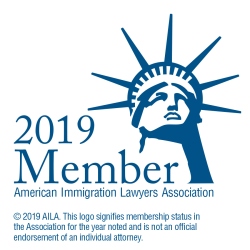In these uncertain political times, it is especially important that you hire an immigration lawyer that you can trust to do her job correctly. Many prospective clients focus solely on a firm’s record of success on similar cases. However, clients should also consider whether an attorney’s business practices restrict the client’s ability to hold their attorney accountable in the event that she fails to perform her contractual or ethical obligations to the client. If you are not adequately informed of your rights as a client, or sign an agreement that effectively prevents you from ensuring that your attorney complies with her ethical obligations, then you have probably hired an attorney that is more interested in protecting herself than you. Below are some signs that your attorney may be playing fast and loose with her ethical obligations.
1. You had a brief and uninformative legal consultation before signing an engagement agreement for substantive services.
An attorney has an ethical obligation to “reasonably consult with the client about the means by which the client’s objectives are to be accomplished” and to “explain a matter to the extent reasonably necessary to permit the client to make informed decisions regarding the representation.” Model Rule of Professional Conduct 1.4; Illinois Rule of Professional Conduct 1.4.
Attorneys also have a duty to “provide competent representation to a client.” Model Rule of Professional Conduct 1.1. Comment 5 to Illinois Rule of Professional Conduct 1.1 explains that the “[c]ompetent handling of a particular matter includes inquiry into and analysis of the factual and legal elements of the problem, and use of methods and procedures meeting the standards of competent practitioners.”
At an initial legal consultation, an attorney is supposed to gather sufficient facts from you in order to determine if she is able to help you. Sometimes this determination requires a preliminary factual investigation. For example, many immigration firms perform FOIA requests and/or FBI background checks as a preliminary step in a variety of cases. However, the decision to engage the firm to perform these records searches requires your informed consent. To this end, the attorney should explain to you why the proposed records search is a necessary step in accomplishing your objectives, and whether there are any possible risks associated with it. The attorney should also discuss with you how certain search results could affect strategic recommendations and service offerings in your case. Lastly, the attorney should also explain her fees and clearly define the scope of representation for any offered service.
If you are looking to obtain an employment-based green card through an EB-1A (extraordinary ability) or EB-2 (NIW) petition, it is important that you first discuss with your attorney the logistics of your case after your I-140 petition is approved, as well as the possible consequences of a denial. Why pay an attorney to assist you in filing your I-140 if you will ultimately be unable to obtain your green card on the basis of the approved I-140? Below are some important strategic considerations that may affect your decision to pursue an I-140 petition in the first place:
- estimated processing times for each step of the process
- whether concurrent filing of the I-485 is possible and desirable in light of the financial risks
- whether there are any inadmissibility issues that could potentially frustrate your ability to immigrate to the U.S.
- whether you and/or your family members will be able to maintain legal status while your I-140 is pending
- whether there are family members that will be applying for permanent residence on the basis of your approved I-140
- whether you and/or your family members plan on applying for adjustment of status or undergoing consular processing
Many practitioners, including our firm, offer free CV evaluations for the above employment-based petitions. Do keep in mind, however, that CV evaluations are limited to determining eligibility for a given category of employment-based immigration. This is just one part of the immigration process. You should not have to wait until after your I-140 is approved to consider the other steps. If your attorney only discussed your I-140 eligibility with you and you are now deciding whether to sign an agreement for representation in connection with the I-140 petition, then you need to get answers to these questions first. Remember: you are the one that needs to make an informed decision!
Also keep in mind that some attorneys limit the consultation time to one hour or less, while others don’t limit the consultation time at all. Make sure you ask about this before scheduling an initial consultation with an immigration attorney.
At Nancy M. Vizer, P.C., we take the necessary time to work through the facts of your case and make strategic recommendations based on your short- and long-term goals. Because we take our ethical obligations seriously, your consultation for EB-1 and NIW cases includes a discussion of the above listed preliminary considerations.
2. Your representation agreement says that every communication initiated by you and not requested by your attorney is excessive.
Attorneys have an ethical obligation to keep you “reasonably informed about the status of [your case.]” Model Rule of Professional Conduct 1.4; Illinois Rule of Professional Conduct 1.4.
Comment 4 to Illinois Rule of Professional Conduct 1.4 provides that “[a] lawyer’s regular communication with clients will minimize the occasions on which a client will need to request information concerning the representation. When a client makes a reasonable request for information, however, paragraph (a)(4) requires prompt compliance with the request, or if a prompt response is not feasible, that the lawyer, or a member of the lawyer’s staff, acknowledge receipt of the request and advise the client when a response may be expected. A lawyer should promptly respond to or acknowledge client communications.”
At Nancy M. Vizer, P.C., we do not discourage clients from making reasonable requests for information. We do not deem all communication initiated by you and not requested by us as excessive. We do not charge our clients hourly fees to touch base with them and discuss the status of their case if they happen to contact us before we contact them. We also make an effort to take clients’ calls during business hours rather than automatically forward all our calls to a voicemail.
3. You don’t have a specific attorney assigned to your case.
All attorneys have a personal duty to abide by the Rules of Professional Conduct. See Illinois Rule of Professional Conduct Rule 5.2(a).
When no specific attorney is assigned to your case, it makes it easier for attorneys who work on your case to escape liability for failing to fulfill their ethical obligations to you. A firm’s assurances that the quality of service will not suffer because you have no specific attorney assigned to your case means nothing if your attorney has undermined your ability to enforce that assurance. Even if no attorney is assigned to your case, make sure that you keep a record of your communications with your firm, and that you get a name for the person behind every single interaction. In any event, Rule 5.1(c) lists two ways in which a lawyer can be held responsible for another lawyer’s violation of the Rules of Professional Conduct:
(1) the lawyer orders or, with knowledge of the specific conduct, ratifies the conduct involved; or
(2) the lawyer is a partner or has comparable managerial authority in the law firm in which the other lawyer practices, or has direct supervisory authority over the other lawyer, and knows of the conduct at a time when its consequences can be avoided or mitigated but fails to take reasonable remedial action.
At Nancy M. Vizer, P.C. you will always have at least one attorney as a point of contact on your case.
4. Your representation agreement contains a mediation or arbitration clause.
If your contract limits dispute resolution in this manner, you should make sure that (1) the attorney fully apprises you of the advantages and disadvantages of binding arbitration and gives you enough information so that you can make an informed decision about this issue, and (2) the arbitration provision does not limit the liability to which the lawyer would otherwise be exposed under common or statutory law unless you are independently represented in making the agreement.
While arbitration clauses related to attorney malpractice claims are generally enforceable in Illinois, the Illinois Rule of Professional Conduct 1.8(h)(1) states that a lawyer shall not “make an agreement prospectively limiting the lawyer’s liability to a client for malpractice unless the client is independently represented in making the agreement.” Comment 14 to the rule provides the reasoning for this, noting that such an agreement is “likely to undermine competent and diligent representation.” Further, this comment notes that “many clients are unable to evaluate the desirability of making such an agreement before a dispute has arisen.” The comment also notes that the rule does not “prohibit a lawyer from entering into an agreement with the client to arbitrate legal malpractice claims, provided such agreements are enforceable and the client is fully informed of the scope and effect of the agreement.”
At Nancy M. Vizer, P.C., we do not use mediation or arbitration clauses in our engagement agreements.
5. Your representation agreement prohibits you from disclosing any information relating to the representation.
The concepts of attorney work product and intellectual property have sometimes been employed to prohibit clients from disclosing any and all information relating to their representation, in what amounts to confidentiality clauses. Some practitioners have gone as far as defining attorney communications and legal advice as attorney work product. This is an unethical practice that may render the agreement unconscionable and therefore unenforceable. The practical effect of such an expansive confidentiality clause is that clients will be terrified to share any information about their representation with anyone, including other counsel, should a dispute arise. In fact, you should be wary of entering a representation agreement with an attorney who discourages you from seeking independent legal advice before entering said agreement. As a client, you have the right to seek a second professional opinion, to terminate representation, to sue for malpractice, etc. Attorneys obviously dislike these situations and good attorneys will try their hardest to avoid them. But they still have an obligation to apprise you of your rights as a client!
The doctrine of attorney work product, like that of attorney-client privilege, was created to protect the client, not the attorney. Comment 3 of Illinois Rule of Professional Conduct 1.6 discusses attorney work product as follows:
The principle of client-lawyer confidentiality is given effect by related bodies of law: the attorney-client privilege, the work product doctrine and the rule of confidentiality established in professional ethics. The attorney-client privilege and work product doctrine apply in judicial and other proceedings in which a lawyer may be called as a witness or otherwise required to produce evidence concerning a client. The rule of client-lawyer confidentiality applies in situations other than those where evidence is sought from the lawyer through compulsion of law. The confidentiality rule, for example, applies not only to matters communicated in confidence by the client but also to all information relating to the representation, whatever its source. A lawyer may not disclose such information except as authorized or required by the Rules of Professional Conduct or other law.
Generally, a client has the ability to disclose or authorize disclosure of confidential information concerning his or her representation. The latter is normally accomplished by signing a release authorizing disclosure to a specified individual. Unfortunately, some practitioners employ clauses prohibiting clients from making or authorizing such disclosures in order to silence clients and discourage them from seeking representation of other counsel should a dispute arise. If you signed a representation agreement containing this type of clause, and are now in a dispute with your attorney, do seek the advice of a contract or malpractice attorney. Remember that all legal consultations are confidential.
At Nancy M. Vizer, P.C. we believe that the quality of our services and their value to our clients depends on the personalized approach we give to each individual case. We don’t use cookie-cutter approaches because we refuse to neglect our ethical duties as legal advisors to our clients. Successful attorney-client relationships are not predicated on mass-produced applications or DIY kits sold to consumers on the condition that they waive their most important rights, the very rights that the legal profession was designed to protect.





How about a 6th reason: “The Spanish translations on your lawyers’ website are filled with mistakes”? (As in the case of the TPS article on this site.